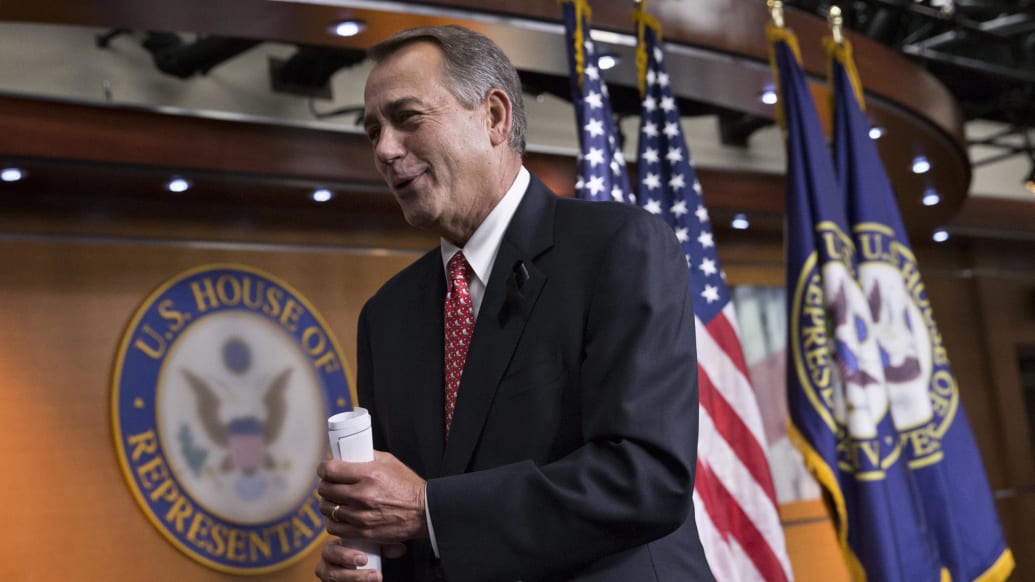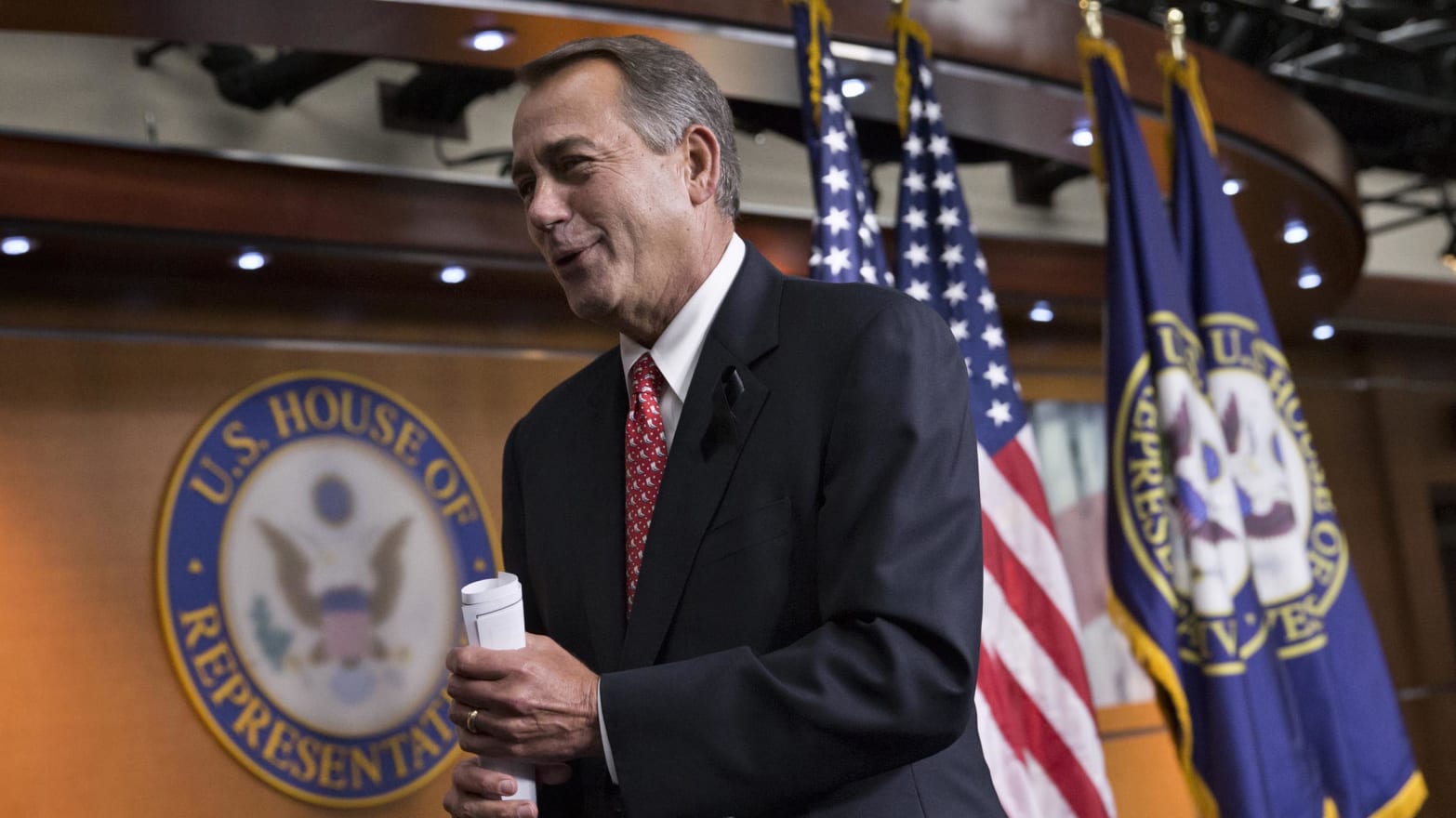
For the first time in months, Washington seems…optimistic. Not only did House Republicans pass the budget deal brokered by Budget Chairman Paul Ryan and his counterpart in the Senate, Senator Patty Murray, but Speaker John Boehner made news with a small Howard Beale moment:
"Frankly I think they’re misleading their followers. I think they’re pushing our members in places where they want to be. And frankly I just think they’ve lost all credibility,” he told reporters at his weekly press conference Thursday. “There comes a point when people step over the line. When you criticize something and you have no idea what you’re criticizing, it undermines your credibility.” […]
“You know, they pushed us into this fight to defund Obamacare and shut down the government,” he said. “It wasn’t exactly the strategy I had in mind. But if you recall, the day before the government re-opened, one of the people at one of these groups stood up and said, ‘well we never really thought it would work.’ Are you kidding me?”
Asked if he thinks the groups should “stand down,” Boehner said, “I don’t care what they do.”
This looks like the establishment backlash we expected during the shutdown fight, or—as Molly Ball put it for The Atlantic—“House leaders stopped trying to get along with the enforcers of an impossible conservative standard and started fighting back.”
Now, the speculation is that, perhaps, Boehner is prepared to buck Tea Party Republicans on other issues. Immigration activists, for example, are hopeful that this development could change the calculus for reform, and give Boehner the room he needs to pass a bill with votes from pragmatic Republicans—who have an agenda they want to accomplish—and Democrats. Indeed, there’s the potential for a whole rush of activity around issues where Democrats and Republicans can come to narrow agreement, from an extension of unemployment insurance to the Employee Non-Discrimination Act.
The problem is that, aside from this budget deal, it doesn’t look like Boehner has broken from conservatives on much at all. In that same press conference, for instance, he repeated conservative boilerplate on repealing the Affordable Care Act. And afterwards he went to the House floor and blocked a vote on extending emergency unemployment benefits. Likewise, there’s no real indication that he’s changed his mind on the EDNA or unemployment insurance. The House Speaker might be a pragmatist, but he isn’t a moderate.
Earlier this year, Boehner bucked conservatives by violating the “Hastert rule”—the faux requirement that all legislation passed by the House have support by a majority of the majority—to pass a deal on the fiscal cliff, authorize aid for Hurricane Sandy, and renew the Violence Against Women Act. The prediction was that this could be the new normal, and that Boehner could restore a modicum of sanity to the House by refusing to rely on Republican votes for legislation.
What followed, instead, was a year of inaction, culminating in a government shutdown and a stand-off over the fiscal cliff.
All of this is to say that we shouldn’t hold our breath about Boehner and his “new” approach. The Ryan-Murray deal was a necessity: Not only does it preclude Tea Party conservatives from forcing another shutdown, but it preserves most of the sequester and hands Republicans a solid victory.
As for the other agenda items? Most Republicans don’t want them and there’s no reason for Boehner to go against the tide.

